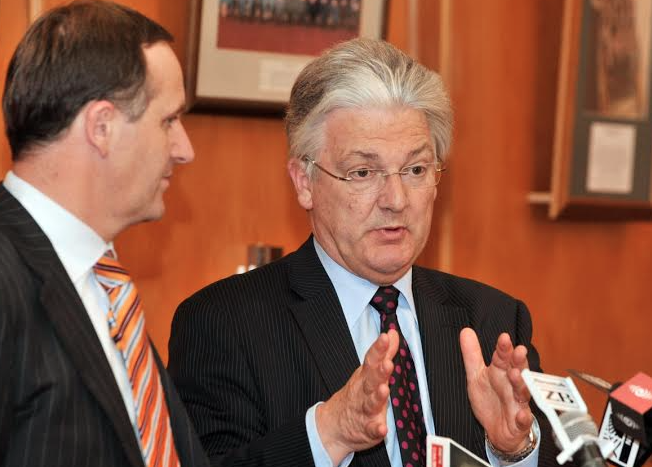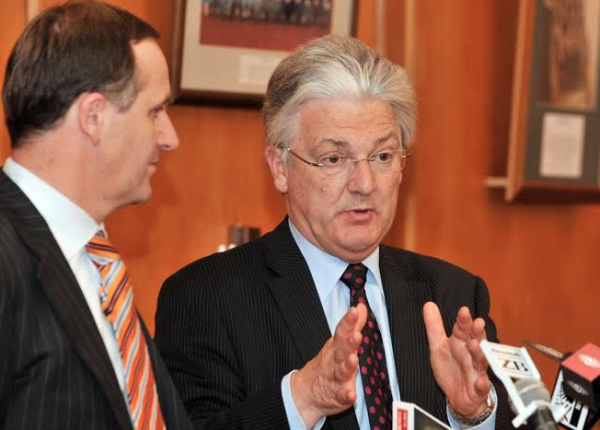The NZ Herald has released the results of a poll of 750 respondents taken 14-24 August:
An overwhelming number of New Zealanders support the legalisation of cannabis for medicinal use, the latest Herald-DigiPoll survey shows.The issue has been in the spotlight this year after the high-profile case of Alex Renton, who was eventually prescribed Elixinol, a cannabidiol made from hemp, after approval from Associate Health Minister Peter Dunne.Poll voters were asked which statement best fitted their view on the legalisation of cannabis. Seventy per cent said they wanted the drug legalised only for medicinal use under strict conditions.Fifteen per cent wanted it kept illegal for all uses and 13 per cent wanted it legalised for all uses.Mr Dunne said the results were not surprising. “The reason I’ve been interested in exploring the medicinal cannabis aspect is reflective of that type of feeling.”
It’s great that so many Kiwis are now calling for safe legal access to medical cannabis. And only 15% of people want to keep the current law… Fifteen per cent! Let’s stop a moment to savour that.
But hang on, this poll also sounds like less than one-in-seven people want cannabis to be made legal.. That is a far cry from the general feeling out there and the results of other recent polls.
I wonder if the phrasing of the question had anything to do with it. Most people will naturally go for the middle option. It seems fairer. It’s moderate, and, well, in the middle. Especially if that middle, moderate, option said it would have “strict conditions”, and the only other reform option would make it legal “for all uses” (which naturally conjures up images of using at work, drug driving, teenage use, stuporfication, and so on – never mind that these would all remain illegal).
Other recent polls have shown massive support for making cannabis legal, not just for medical purposes but also as a safer alternative to alcohol and synthetics. For example:
- A RadioLive poll in June had 88% saying yes to allowing medicinal cannabis and with a further 9% wanting it decriminalised instead, only 4% supported the current uncompassionate approach.
- In June 2014 the New Zealand Herald reported “Most people want to see cannabis either made legal or decriminalised”:
- A Campbell Live survey on 16 April 2014 found 84 percent of respondents said yes “it is time to decriminalise cannabis for personal use”.
- TV3’s The Vote debated cannabis law reform on 22 May 2013 and viewers voted overwhelmingly in favour of decriminalisation, with 72 percent voting yes and just 28 percent voting no.
- A TV3/TNZ poll from November 2006 found 63 per cent of respondents support legalising marijuana for pain relief.
- A UMR Insight poll of 750 people aged over 18 published in The Dominion in August 2000 found sixty per cent of New Zealanders favour law reform. 41 per cent want to decriminalise cannabis, and an additional 19 per cent want cannabis legalised.
Key’s government is intensely poll driven – on any issue other than cannabis, it seems. Key will cheerily change his position if the polls and their focus groups say they should. He most recently showed this with his mealy mouthed and belated response to Syrian refugees, and his changing position on the flag.
Polls on cannabis laws have shown increasing majorities supporting reform. As with this latest Herald poll, lately they show almost no one supports the current law. National’s focus groups and internal polling are run by David Farrar – a supporter of cannabis law reform. Yet so far Key has refused to rethink his support for criminalising people who choose pot over more harmful drugs like alcohol (Key also won’t fess up whether he has ever partaken of the evil weed – as with his support or not for the Springbok tour, he prefers to forget).
It has taken Peter Dunne, of all people, to introduce rational clear thinking on this issue. Dunne famously blocked cannabis reform under the previous Labour Government, yet is now the most sensible voice in Government when it comes to drugs policy. Rather than wallow in cheap anti-drug rhetoric he has taken the high road.
Dunne has approved the cannabis extract Sativex for general prescription, allowed another cannabis extract called Elixinol to be used for the first time in a hospital setting, and overseen a comprehensive review of the National Drug Policy that promises to reset drug policy towards “compassion, proportionality and innovation”, including “Getting the legal balance right”. Dunne also introduced the Psychoactive Substances Act, which remains law and is perhaps the world’s most progressive drug legislation (although fatally flawed by applying only to synthetic cannabis and not the real thing). Dunne has now asked Pharmac to reconsider subsidising Sativex, and says more medicinal cannabis products will be made available.
Few people – least of all me – picked Dunne would take the high road. The polls show New Zealanders think the tentative steps he has taken so far are on the right course.
Former editor of NORML News, Chris Fowlie is president of the National Organisation for the Reform of Marijuana Laws, manager of The Hempstore, and court-recognised expert witness for serious cannabis charges.







as i have no access to dunne..(heh..!..he blocked me on twitter..)..cd someone please pass this on to him..
http://www.alternet.org/drugs/california-regulate-medical-marijuana
it details how california has just passed a brace of laws to tidy-up/regulate after 20 yrs of allowing medical marijuana..
..i am sure he/we could learn from those mistakes that california has now fixed up..
..no need for us to make those same mistakes again..eh..?
..if dunne is looking around for a template for drug-sanity..(and we hardly need to reinvent the bong..do we..?..)
..this could well be it..
Neoliberal capture of cannabis.
It becomes another legalised drug like tobacco and alcohol.
And who would it harm the most? The 10% who own 90% of the wealth in NZ, the 10% who would vote for a new flag?
Why not delegalise tobacco and alcohol because of the harm it does.
Nope that’s not the neoliberal way.
@ winnie..
um..!..what is this ‘harm’ you speak of..?
..the legalisation of cannabis..if following the pattern seen in colorado..
..will see a large overall drop in ‘harm’..as alcohol consumption will drop..
..colorado has also seen a large drop in domestic violence..and other alcohol-related crime..
..all of this is what makes me ask you just what this ‘harm’ is that you speak of..?
since when is it acceptable for religious extremists to be in charge of health policy’s, hes the NZ equivalent to the Taliban, the reasons that cannabis is a healthy alternative to western medicine is because its natural ingredients are a PROVED benefit to the body, so he wants to use the drug company version instead, obviously another attempt to water down whats good for you, hey kiwis need real medicine not more fake ass crap this government wants to jam down your throat, if you want the truth and the benefits of pot tourism, not too mention the finical windfall from exports to large overseas consumers, then grow a pair and vote for legalization, also try to remember you live in a supposed democracy (not my experience)
Funny how the Nats deride the “nanny state”.
Thanks for this piece Chris. Your key point (pun intended) is that the number who are willing to tell a pollster they support legal recreational cannabis is now the same as those who oppose it. This, in combination with the Law Commission’s report on their review of the Misuse of Drugs Act (MODA), means the NZ government no longer has a democratic mandate to keep the current prohibition system in place. The debate has clearly shifted from “should it be legal?”, to “legal for what”? However, when you say:
>> Dunne also introduced the Psychoactive Substances Act, which remains law and is perhaps the world’s most progressive drug legislation (although fatally flawed by applying only to synthetic cannabis and not the real thing).
I have to respectfully disagree. Under MODA the government had to make decisions about controlling drugs on a case-by-case basis, with the onus on them to justify imposing control. Under the PSA, any substance can now be declared a “psychoactive substance” and arbitrarily banned, and users/ vendors have to spend thousands of dollars trying to “prove it’s safe”, which is scientifically impossible; scientific study can only a) prove a danger or b) fail to prove a danger. Thus, the PSA was a *massive* extension of the government’s prohibition powers, and huge loss for freedom of consciousness and personal choice.
A whole bevy of substances which had never been proved harmful have disappeared from the shelves (eg Salvia Divinorum http://www.sagewisdom.org/usersguide.html). At the same time, some of the most dangerous psychoactive drugs (eg alcohol) are not even covered by the PSA, making it discriminatory and hypocritical. If you want a model for “the world’s most progressive drug legislation”, I suggest Uruguay as a better model.
@Winnie: one could block any progressive policy by associating it with neoliberalism. This is just scaremongering. Yes, principled neoliberals reject prohibition as the “nanny state” tyranny it is. But there are also plenty of social justice and human rights arguments for ending the criminalization of our friends and neighbours for their choice of recreational drug, and addressing the supply regulations for each drug rationally, based on robust evidence of benefits and harms. Colorado has invested the tax take from cannabis businesses in their state into the public education system. Hardly a neoliberal policy.
Comments are closed.